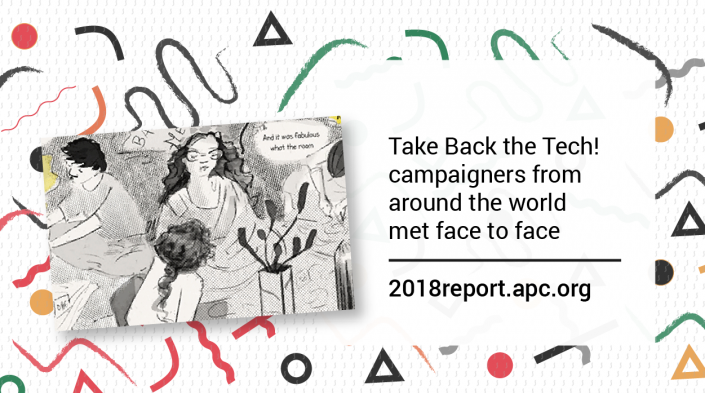
Publisher: APCNews
Published onPage last updated on
Women’s rights and sexual rights activists engage with internet and ICT policy and development as feminist issues. This is a compendium of the highlights from APC's Annual Report for 2018.
Celebrated increased gender and tech activism in Latin America
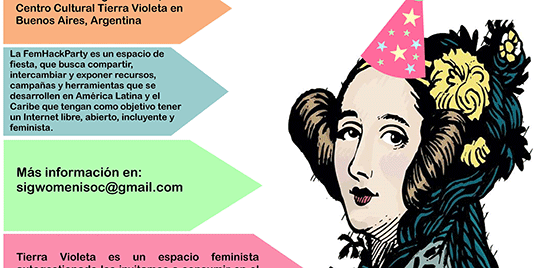 In August, during the 2018 Latin American and Caribbean Internet Governance Forum in Buenos Aires, Argentina, APC and Internet Society’s Special Interest Group of Women (Women SIG) hosted a FemHack Party that brought together feminist organisations to present their initiatives on feminist activism on the internet in the meaningful venue, Centro Cultural Tierra Violeta.
In August, during the 2018 Latin American and Caribbean Internet Governance Forum in Buenos Aires, Argentina, APC and Internet Society’s Special Interest Group of Women (Women SIG) hosted a FemHack Party that brought together feminist organisations to present their initiatives on feminist activism on the internet in the meaningful venue, Centro Cultural Tierra Violeta.
Around 80 participants, mostly women and LGBTIQ activists, gathered to present and share their aims and projects in Latin America, open opportunities to networks and get to know new organisations, activists and initiatives in the region. The many presenters highlighted women and sexual rights activists' involvement in projects and debates regarding internet rights, development and policies. This was the first time a FemHack Party took place in the context of a regional IGF, with the first one taking place in 2016 during the global IGF in Guadalajara, Mexico.
Image: APC.
Activists in Central Asia and Central Eastern Europe joined efforts to make a feminist internet
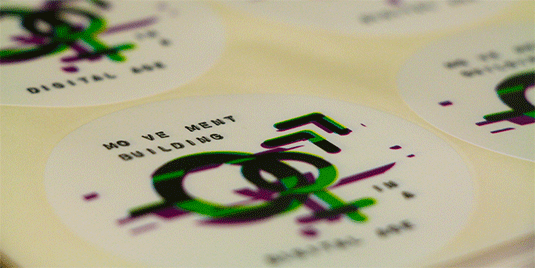 In 2018, APC increased the understanding and positive reception for the Feminist Principles of the Internet (FPIs) as a framework for movement building and analysis through development of FPI resources, including producing translations and organising local conversations, presentations and discussions on FPIs at 10 events with over 250 women's organisations, activists, groups and partners.
In 2018, APC increased the understanding and positive reception for the Feminist Principles of the Internet (FPIs) as a framework for movement building and analysis through development of FPI resources, including producing translations and organising local conversations, presentations and discussions on FPIs at 10 events with over 250 women's organisations, activists, groups and partners.
The Making a Feminist Internet (MFI) gatherings aim to surface the need for more context-specific conversations with a range of actors within the feminist and women's movements. In October 2018, in Belgrade, Serbia, APC Women’s Rights Programme organised the first regional MFI meeting in Central Asia and Central Eastern Europe, to understand the challenges in movement organising in this particular region. It was a two-fold event organised in collaboration with One World Platform, the Alternative Center for Girls and TRAG Foundation, which brought together 50 activists working on gender-based violence as well as with girls, queer and LGBTIQ organising, feminist funds, women's political participation and feminist collectives.
This meeting was a challenging and valuable space, which began with participants questioning if there was even a “movement” and went on to focus on how to build trust, transparency and accountability in movements in the digital age, discussing issues such as the politics of organising online and offline, formal and informal work, intergenerational cultures, the dynamics of organising in recognition of the politics of memory in a post-conflict context and the commodification of knowledge, among others.
Image: Feminist Principles of the Internet stickers, by Cathy Chen.
GenderIT.org delved deeper on feminist reflections
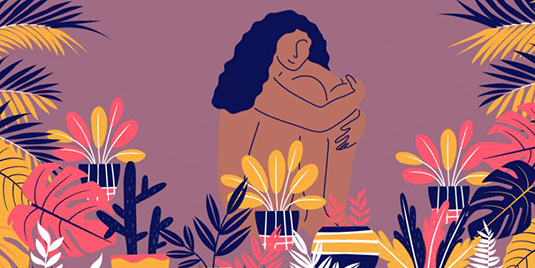 GenderIT.org, a platform for feminist reflections on internet policies that started in 2006, has continued to grow and surprise everyone in 2018. The GenderIT.org platform was upgraded to be more readable and functional for writers, readers and viewers, now accommodating a variety of different formats and better showcasing the visual work of campaigners and artists.
GenderIT.org, a platform for feminist reflections on internet policies that started in 2006, has continued to grow and surprise everyone in 2018. The GenderIT.org platform was upgraded to be more readable and functional for writers, readers and viewers, now accommodating a variety of different formats and better showcasing the visual work of campaigners and artists.
The Take Back the Tech! gathering that took place along with a Feminist Tech Exchange (FTX) Safety Reboot in August 2018 in Nepal, spawned a massive starburst of ideas and images that inspired the edition, "Technology for feminist creativity and care", which contained brilliant work on illustrations, articles, stop motion videos and feminist super heroes.
The open call for articles on online violence, harassment, privacy, anonymity, security, sexuality, encounters online with self and community, intersectionality, issues for transgender people online, digital economy in the Middle East, Sub-Saharan and North Africa and South Asia as part of the All Women Count project, led to the publication of 39 articles that covered these issues from several countries. These included Bangladesh, India, Ghana, Malaysia, Uganda, Tanzania, Sri Lanka, and also addressed intersections of gender with disability, race, caste and ethnicity.
Image: Self-care. Illustrations by Paru Ramesh. GenderIT.org.
Laid the foundations to bridge the gap between feminist and tech research
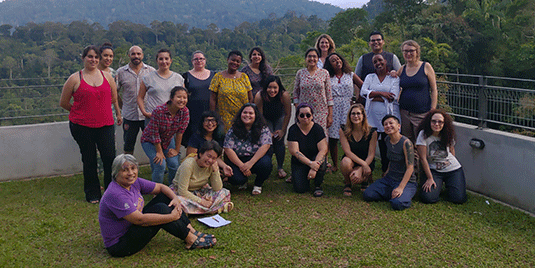 A mapping study on gender and digital technology carried out in 2017 by APC highlighted the critical gaps in the research around gender equality and technology in middle- and low-income countries, and the impact this has on internet policy development and decision making, particularly in terms of addressing needs of women, gender diverse and queer people.
A mapping study on gender and digital technology carried out in 2017 by APC highlighted the critical gaps in the research around gender equality and technology in middle- and low-income countries, and the impact this has on internet policy development and decision making, particularly in terms of addressing needs of women, gender diverse and queer people.
In 2018, APC in collaboration with the International Development Research Centre (IDRC), launched the Feminist Internet Research Network (FIRN) to counter this gap in the research landscape for the next three years. The network is engaging with researchers from around the world, but especially in the global South, to explore new approaches to digital research built around the Feminist Principles of the Internet and feminist research practices and values, such as situatedness, positionality and intersectionality. The network is establishing the foundations to build the field and generate substantive evidence to drive changes in policies and discourse around internet rights, from meaningful access, to datafication, online gender-based violence, and digital labour.
Image: Cathy Chen. Participants at the FIRN inception meeting.
Cooked up a feminist internet using new recipes for 16 days
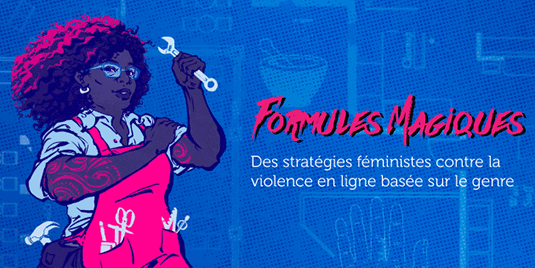 The 2018 edition of the annual Take Back the Tech! campaign was held from 25 November to 10 December. Under the theme Magic Formulas, the 16-day campaign prompted activists to concoct fresh feminist strategies to fight against online gender-based violence and test out new recipes for building knowledge and taking action to develop a feminist internet.
The 2018 edition of the annual Take Back the Tech! campaign was held from 25 November to 10 December. Under the theme Magic Formulas, the 16-day campaign prompted activists to concoct fresh feminist strategies to fight against online gender-based violence and test out new recipes for building knowledge and taking action to develop a feminist internet.
Many APC members participated in the campaign, developing both online and offline events and activities to raise awareness among local communities and contribute to a global discussion around promoting women’s rights and freedoms online. Campaign highlights included One World Platform’s 16 video interviews with feminist activists in Bosnia and Herzegovina; Nigeria-based Centre for Information Technology and Development (CITAD)’s workshops for secondary students and radio and television appearances; Colombia-based Colnodo’s e-book publication, podcast and human rights workshop; and Foundation for Media Alternatives’ online spotlighting of local activists and university workshops in the Philippines. Several other APC members, including Bytesforall Bangladesh, Derechos Digitales, Media Matters for Democracy, Point of View, Sulá Batsú and WOUGNET, also made exciting and diverse contributions to this year’s TBTT! campaign.
Image: APC.
Take Back the Tech! campaigners from around the world met face to face
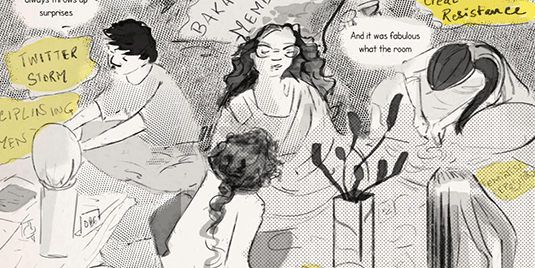 In August 2018, a Take Back the Tech! global meeting was held in parallel to the Feminist Tech Exchange (FTX) in Dhukilel, Nepal, bringing together campaigners from around the world to discuss online gender-based violence, digital expression of sexuality and gender identity, and the challenges and opportunities presented by current technologies.
In August 2018, a Take Back the Tech! global meeting was held in parallel to the Feminist Tech Exchange (FTX) in Dhukilel, Nepal, bringing together campaigners from around the world to discuss online gender-based violence, digital expression of sexuality and gender identity, and the challenges and opportunities presented by current technologies.
The result was galvanising, injecting fresh ideas into a movement seeking new creative voices and approaches and sparking challenging conversations while prioritising self-care. Read an illustrated love letter to the TBTT global gathering, an account of how to make your own hero and various reflections on feminist creativity and care.
Image: Extract from the illustrated love letter to the TBTT global gathering by Samita Chatterjee.
Consolidated the EROTICS network in India, Nepal and Sri Lanka
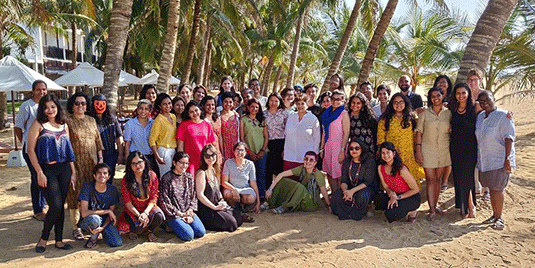 In 2018, APC’s Exploratory Research on Sexuality and the Internet (EROTICS) initiative, initially established in 2009, wrapped up a two-year project in South Asia: “Building EROTICS Networks in India, Nepal and Sri Lanka.”
In 2018, APC’s Exploratory Research on Sexuality and the Internet (EROTICS) initiative, initially established in 2009, wrapped up a two-year project in South Asia: “Building EROTICS Networks in India, Nepal and Sri Lanka.”
This initiative expanded India’s participation in the programme through ongoing partnership with APC member Point of View, and brought in new organisations, Women and Media Collective from Sri Lanka and LOOM from Nepal, to contribute to the research and advocacy network.
Drawing on the diverse expertise provided by the global EROTICS network, this project enabled sexual rights activists in India, Nepal and Sri Lanka to engage politically with the internet as a public space and counter technology-related violence against women and LGBTIQ people.
Image: EROTICS inception meeting in February 2019.
Código Sur launched a feminist learning community in Central America
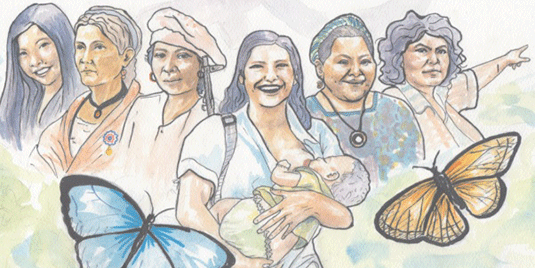 Código Sur, based in Costa Rica, launched the Feminist Learning Community with the support of an APC subgrant. This initiative was designed to strengthen and build the capacity of feminist and LBTI movements in Central America by offering training around physical and digital protection and communication.
Código Sur, based in Costa Rica, launched the Feminist Learning Community with the support of an APC subgrant. This initiative was designed to strengthen and build the capacity of feminist and LBTI movements in Central America by offering training around physical and digital protection and communication.
The project consisted of three unique workshops in El Salvador, Honduras and Guatemala, with 180 feminist and LBTI activist participants, designed to address relevant concerns within the specific country context. In addition, the project sought to open a conversation around feminism and digital safety with the general public, create a network of discussion groups, and develop a regional assembly to evaluate the outcomes of the learning community and further regional strategic planning around these challenges.
Image: Código Sur.
7amleh published first of its kind study on gender-based violence online in Palestine
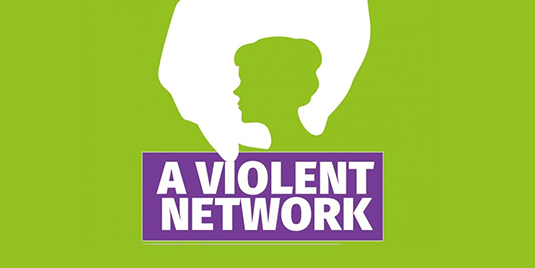 In November 2018, 7amleh - The Arab Center for the Advancement of Social Media published a quantitative and qualitative research study on the phenomenon of gender-based violence (GBV) online in cooperation with Kvinna til Kvinna Foundation. The research focused on Palestinian women and activists in Jerusalem, Israel, Gaza and the West Bank and came to the shocking conclusion that one third of the women were subjected to violence and harassment online.
In November 2018, 7amleh - The Arab Center for the Advancement of Social Media published a quantitative and qualitative research study on the phenomenon of gender-based violence (GBV) online in cooperation with Kvinna til Kvinna Foundation. The research focused on Palestinian women and activists in Jerusalem, Israel, Gaza and the West Bank and came to the shocking conclusion that one third of the women were subjected to violence and harassment online.
GBV online is an increasing phenomenon throughout Palestine and covers a wide span of activities, including hacking accounts, extortion, receiving of inappropriate content and the publication of personal details. According to the main researcher of this report, Shahrazad Odeh, “This is a comprehensive study and the first of its kind that shows us the magnitude of the phenomenon and its extent. The study will also serve as a basis for the work of the Palestinian institutions concerned with combating gender-based violence on the internet and social networks.”
Image: 7amleh.
Gender activists sought functional laws to end violence against women online in Nigeria
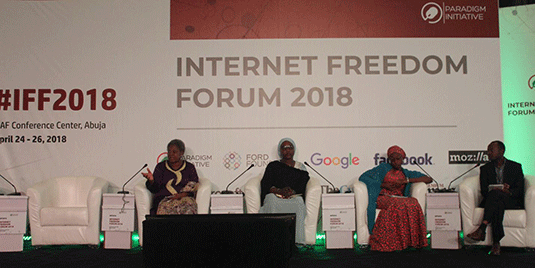 Panellists and participants at the 2018 Internet Freedom Forum (IFF) – which took place in Nigeria’s capital Abuja – expressed concern over the growing level of violence against women online, especially in the rural areas in developing countries where access to the internet for women and girls remains a challenge.
Panellists and participants at the 2018 Internet Freedom Forum (IFF) – which took place in Nigeria’s capital Abuja – expressed concern over the growing level of violence against women online, especially in the rural areas in developing countries where access to the internet for women and girls remains a challenge.
“De-toxicating the Net: Addressing Hate Speech and Gender-Based Violence Online” was the theme of a parallel panel organised by the Centre for Information Technology and Development (CITAD) at the IFF, as part of its long-standing campaign to make the internet safe and secure for women, with support from APC. Gender activist and panellist Ene Ede of Search for Common Ground noted that unless authorities come up with stiffer laws and make sure that these are functional, gender-based violence against women online will continue to prevent women and girls from leveraging the unlimited opportunities the internet offers to them. In their separate contributions, panellists Salmat Abdulwaheed of the Civil Society Legislative Advocacy Centre and Maryam Ado Haruna of CITAD gave instances of how women celebrities, academics, entrepreneurs, other professionals and students were either harassed or intimidated online in Nigeria on the basis of their gender. Afterwards, they recommended measures capable of taming violence against women online. Participants from over 13 countries concurred on the need to seek ways to end acts of online harassment of women.
Image: Paradigm Initiative. From left to right: panellists Ene Ede, Salmat Abdulwaheed, Maryam Ado Haruna and Hamza Ibrahim.
WOUGNET shared findings on the emergence of tech-related violence in Uganda
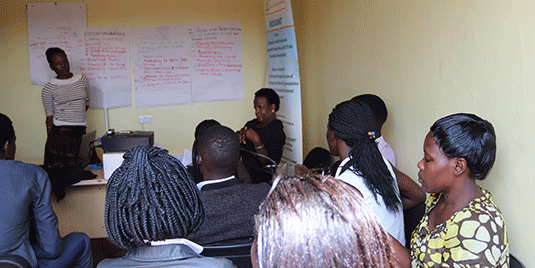 On 5 December 2018, the Women of Uganda Network (WOUGNET) conducted a half-day multistakeholder workshop to share findings from the APC-funded research study “Investigating tech-related violence against women in peri-urban areas of Uganda.” The event was attended by notable participants such as representatives from the Uganda Women’s Parliamentary Association and the National Union for Women with Disabilities in Uganda.
On 5 December 2018, the Women of Uganda Network (WOUGNET) conducted a half-day multistakeholder workshop to share findings from the APC-funded research study “Investigating tech-related violence against women in peri-urban areas of Uganda.” The event was attended by notable participants such as representatives from the Uganda Women’s Parliamentary Association and the National Union for Women with Disabilities in Uganda.
The workshop was the opportunity to share with the attendees some key points from the three-month study conducted between June and August 2018. The study identified and analysed the Ugandan laws that could be used to prosecute acts of tech-related violence against women, such as the Computer Misuse Act from 2011, the Data Protection and Privacy Bill from 2015 (which was a Bill at the time of this research but is now an Act), the Anti-Pornography Act from 2014 and the Penal Code Act.
Although these laws exist, the research revealed that the main legal challenge in criminalising tech-related violence against women is that the provisions on cybercrime are overly general. This raised the question of whether there should be one specific law for cybercrimes, including online violence against women, or whether the provisions in existing laws should be reviewed and made more clear and specific to deal with cases like these.
This research was a continuation of all the on-ground work done by WOUGNET, including prior research done over the years, such as the 2015 study commissioned by the Web Foundation on women’s rights online, which was also shared at the workshop.
Image: Workshop participant sharing her group’s thoughts on a way forward for WOUGNET after the research.
To watch out for
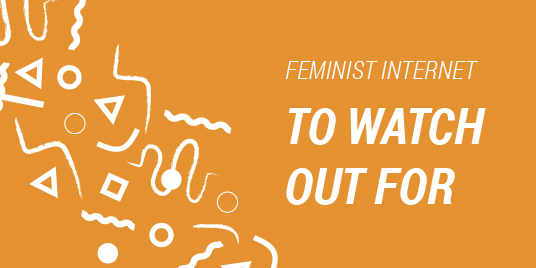 As 2019 progresses, APC’s Women’s Rights Programme initiatives will continue to grow and develop in collaboration with APC members. The Feminist Internet Research Network will hold its inception meeting in early 2019, bringing together APC staff and participating members to discuss the roll-out of the project. Watch out as well for the proposals submitted for research funding on themes such as access, online gender-based violence, economy and labour, and datafication.
As 2019 progresses, APC’s Women’s Rights Programme initiatives will continue to grow and develop in collaboration with APC members. The Feminist Internet Research Network will hold its inception meeting in early 2019, bringing together APC staff and participating members to discuss the roll-out of the project. Watch out as well for the proposals submitted for research funding on themes such as access, online gender-based violence, economy and labour, and datafication.
And more Making a Feminist Internet gatherings are coming up in 2019! One in Africa, around movement building, and another one in Southeast Asia, which will explore the intersections of gender, sexuality and technology.
In addition to the annual TBTT! campaign, the All Women Count: Take Back the Tech! four-year project will continue to develop in 2019, building the capacities of feminist activists and bringing the Feminist Principles of the Internet to life, while the Expanding the EROTICS network in South Asia research initiative will shed light on sexual and digital rights in the region.


